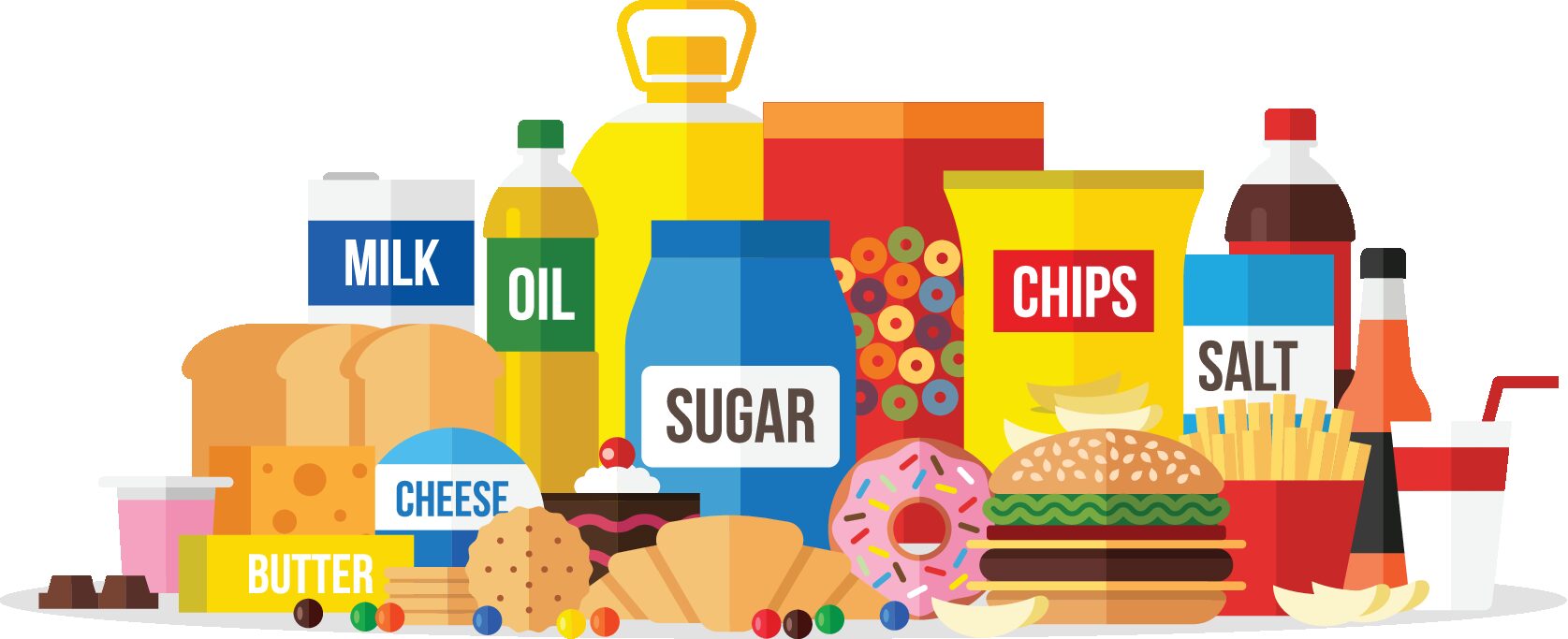
There are many different forms of processing, and they each have different effects on food and our health.
To better understand the varying degrees of processing, researchers use a classification system called NOVA, which groups foods into four categories:
- Group 1: Unprocessed or minimally processed
- Group 2: Processed Ingredients
- Group 3: Processed Foods
- Group 4: Ultra-processed foods
These categories are not perfect, but they provide an excellent general outline to guide our decision-making.
Ultra-Processed Foods
These are made almost entirely from sugars, oils, fats, salts, and other food additives, with minimal, if any at all, ingredients that are unprocessed or minimally processed.
This category includes foods such as:
- prepared meals, including frozen and “instant” ready-made dishes
- chips, cookies, candy, and crackers
- soft drinks, fruit juices, sports drinks, and distilled alcoholic drinks (whiskey, rum vodka)
- pizza, burgers, hot dogs, chicken nuggets
- pastries, donuts, cakes
They are synthesized, industrial formulations that tend to be made with ingredients you would rarely, or never, cook with at home, such as:
- modified corn starch
- high fructose corn syrup
- hydrogenated oil
- food colorings
- artificial flavor enhancers
- bulking agents
- preservatives
Ultra-processed foods can be very profitable for companies because they are cheap, convenient, and “hyper-palatable” – meaning they are designed to be incredibly tasty (and easy to overeat).
But this convenient tastiness comes at a great cost to our health.
Ultra-processed foods are linked to:
- obesity
- heart disease
- type 2 diabetes
- breast cancer
- irritable bowel syndrome
- depression
- frailty
- asthma
- all-cause mortality
In this meta-analysis report, in addition to finding numerous negative health consequences, they conclude:
“No study reported an association between UPF exposure and beneficial health outcomes.”
Processed Foods
This group of food includes:
- cheese
- fresh bread
- canned fish
- cured meat
- beef jerky
- bacon
- tomato paste
- salted or sugared nuts and seeds
- fermented alcohols (beer, wine, cider)
They are primarily made with unprocessed or minimally processed food but have added salt, sugar, oil, and other food additives.
While ultra-processed foods tend to have 5+ ingredients, processed foods only have 2 or 3.
Processed foods appear to be relatively less harmful and may, in some cases, have positive effects, but it is generally recommended to moderate your intake of foods in this group.
Processed Ingredients
There are the ingredients that are used to make processed and ultra-processed foods:
- salt
- sugar
- oil
- butter
- honey
- syrup
They are derived from unprocessed foods and have gone through processes such as:
- grinding
- pressing
- milling
- drying
- refining
Each ingredient has its own set of associated health effects.
Unprocessed or Minimally Processed Foods
Minimal processing means subtraction can be involved (cleaning, cutting, drying, grinding, removing inedible parts), but nothing is added to it.
This category includes:
- fruits (fresh, dried, or frozen)
- fresh fruit juice (with no added sugar)
- vegetables (fresh or frozen)
- nuts and seeds
- whole grains
- beans
- pasta
- herbs and spices
- mushrooms
- fresh or frozen whole meats
- milk
- tea
- coffee
- water
For the best health outcomes, as much as possible, avoid ultra-processed and processed foods, and select unprocessed or minimally processed foods as the bulk of your diet.






















